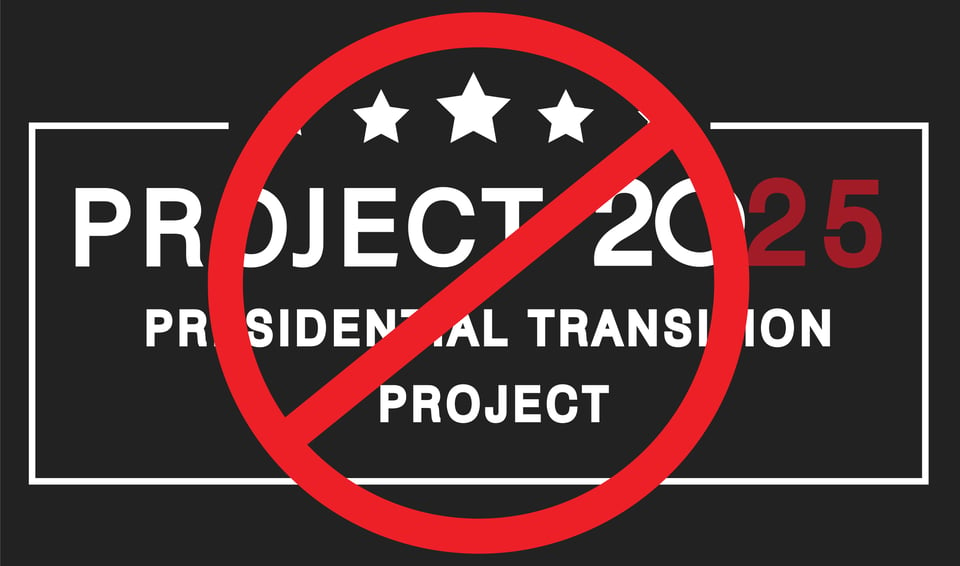Project 2025's threat to Disability Rights

The Americans with Disabilities Act (ADA) is turning 34 this week. But it could be eviscerated if Project 2025 is implemented. The Heritage Foundation has spearheaded Project 2025. It aims to reshape various aspects of the U.S. federal government through conservative policy proposals. Its impact on Americans with disabilities could be significant, particularly in terms of federal programs, healthcare, and civil rights protections.
Here are some potential areas of impact:
Significant reduction in healthcare access
Project 2025 proposes cutting funding for Medicare and Medicaid. This could reduce access to essential healthcare services for people with disabilities who rely on these programs for medical care, therapies, and long-term support.
In addition, Project 2025 proposes many reductions in the Affordable Care Act (ACA). Lest people forget, people with disabilities were uninsurable until the ACA banned the rejection of health insurance coverage based on pre-existing conditions. Reducing ACA coverage could lead to fewer options for individuals with disabilities to access affordable health insurance.
Department of Education
Project 2025 suggests dismantling the Department of Education, which could transfer or terminate programs that support students with disabilities, such as special education services under the Individuals with Disabilities Education Act (IDEA). Reduction in equal access to education starts the pipeline reduction that results in people with disabilities staying in poverty without opportunities to get good jobs. If Individuals with Disabilities Education Act (IDEA) funding goes directly to the states, it will be redirected into barely tangentially related projects. How do we know this is a given? Because it has already happened with $190 billion in pandemic funding.
Employment and Workforce
Project 2025 proposes reclassifying federal civil service workers as political appointees. The government is the largest employer of people with disabilities in the country. Reclassifying civil service roles to political appointees will undermine the nonpartisan nature of the civil service. Less qualified people might be appointed as favors, and people with disabilities would not be able to contest that legally. Employees might feel pressured to align with the administration's political views to retain their jobs. Jobs will terminate as administrations change, requiring the employees to requalify for roles they previously held.
Civil Rights
The project's focus on reducing government regulations will affect the enforcement of civil rights protections, including those under the ADA. Reduced regulatory oversight will inevitably lead to decreased accessibility and accommodations in the public and private sectors. Furthermore, Project 2025’s emphasis on infusing government and society with Christian values might influence policies and practices in ways that could marginalize or overlook the specific needs of people with disabilities, particularly in diverse and secular contexts.
Social Services and Support Programs
Changes proposed by Project 2025 in welfare and social services will reduce support for programs that assist people with disabilities, which will lead to increased financial and social challenges for people with disabilities and their families.
Conclusion
Implementing Project 2025 could result in significant changes to programs and protections that support Americans with disabilities. The proposed cuts in healthcare funding, potential dismantling of the Department of Education, and changes in civil rights enforcement are areas of concern that could impact accessibility, inclusion, and overall well-being for individuals with disabilities.
The disability rights movement has fought for decades to shift from a model of charity to one of civil rights and inclusion. This progress has been encapsulated in landmark legislation such as the ADA, which ensures equal rights and opportunities for individuals with disabilities. In a time when people with disabilities are finally making strides toward greater inclusion, autonomy, and equality, Project 2025 risks regressing the United States back to a charitable model of disability. By dismantling key disability rights programs and protections, Project 2025 threatens to undermine these advancements, reverting to a model where individuals with disabilities must rely on limited, inconsistent, and often demeaning charitable support rather than robust, rights-based frameworks.
Add a comment: